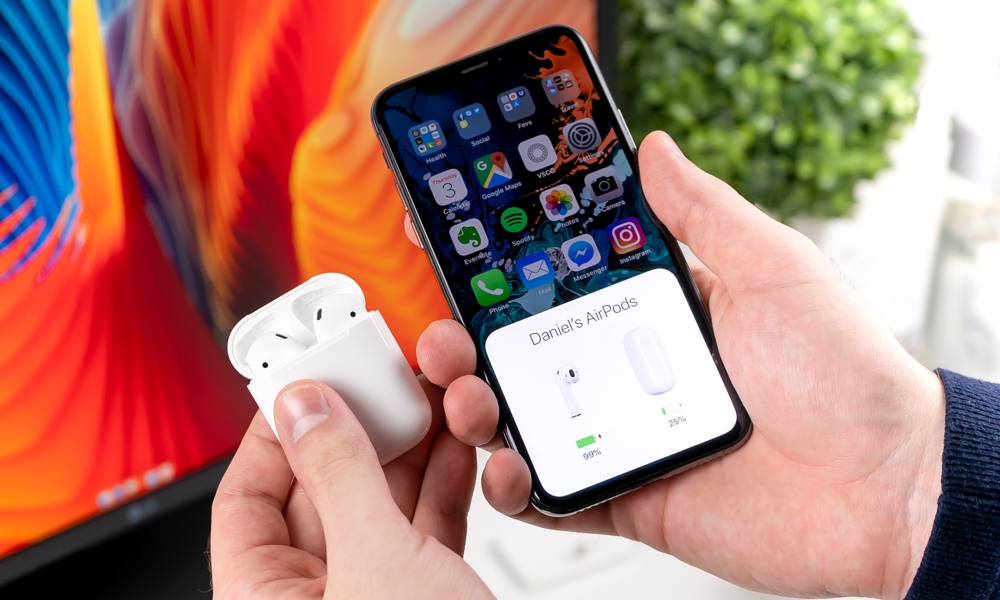Audio Sharing Is Live in iOS 13, Here’s Why You’ll Need AirPods to Use It
 Credit: Daniel Korpai / Unsplash
Credit: Daniel Korpai / Unsplash
Toggle Dark Mode
When Apple took the wraps off iOS 13 earlier this month, one of the new features that
Although Apple didn’t elaborate much on the feature on-stage, we got a better idea of how it works in a report last week.
However, Apple’s iOS 13 release notes on Audio Sharing also reveal some interesting and mysterious limitations as to what devices will be supported.
iPhone, iPad Audio Sharing Compatibility List
Audio Sharing is compatible with the following devices.
- AirPods (1st generation or later) and PowerBeats Pro.
- iPhone 8 or later
- iPad Pro 12.9-inch (2nd generation or later)
- iPad Pro 11-inch
- iPad Pro 10.5-inch
- iPad (5th generation or later)
- iPad Air (3rd generation)
- iPad mini (5th generation)
- iPod touch (7th generation or later).
While at first glance, it looks like Apple is simply limiting the feature to those headphones that include its own W1 or H1 chip, the fact that it specifically mentioned the first-generation AirPods while omitting the similarly-equipped Beats-branded headphones such as the Solo3, Studio3 Beats X, and Powerbeats3 suggests that the company is limiting it even further. While it’s not impossible that there could be technical reasons for this, we’ve never heard or seen any evidence that the W1 chip in the Beats headphones is different than what Apple includes in the AirPods.
The list of supported devices is also an odd collection when you consider the differences in hardware. For example, the fifth-generation iPad is on the list, which uses an A9 chip, yet the A10-powered iPhone 7 is not, nor are either of the A9X-equipped original iPad Pro models. It also doesn’t appear to be a result of Bluetooth specs either, as the oldest supported iPad model still only uses Bluetooth 4.2, and in fact the just-released seventh-gen iPod touch still has the same Bluetooth 4.1 chipset that was found in its 2015 sixth-generation predecessor.
So it looks like Apple is drawing the line at those devices released in 2017 or later for seemingly arbitrary reasons. Of course, it’s also worth noting that the feature remains part of a closed, developer-only iOS beta at this point, and the list of supported devices could expand by the time of the final release.
Is This Dual Bluetooth Audio Sharing?
The other interesting thing here, however, is that this appears to be a proprietary audio sharing protocol that Apple has developed itself, which may partly explains why it’s only supported on Apple’s own W1/H1 earbuds.
There’s a more standard Dual Bluetooth feature that’s been available on Samsung and other Android devices for a while now which is an extension of the standard Bluetooth 5.0 specification, and in fact there have been rumours that this could still be coming to the new 2019 iPhones this fall. It’s unclear, though, whether those reports were conflating new iPhone models with iOS 13 features, and were therefore in fact only referring to the feature that we’re seeing now.
It’s also worth keeping in mind that Apple has some unique challenges when it comes to supporting this kind of a feature with its AirPods, due to problems with audio sync, so we think Apple’s decision to develop its own audio sharing technology is probably a good thing, and may even be absolutely necessary. Most “true wireless” earbuds only make a single Bluetooth connection to the source device from one of the earbuds, passing the audio signal on to the other one using a magnetic induction technology known as NFMI. Apple’s AirPods and PowerBeats Pro, on the other hand, actually maintain independent — and perfectly synced — Bluetooth connections from each of the earbuds. It’s easy to see how the standard Dual Bluetooth 5.0 specs may struggle to address this design.
Whatever the reasons, however, it seems that Apple’s implementation of Audio Sharing will only work with its own AirPods and PowerBeats Pro earphones, but on a positive note, we think this will allow Apple to provide a much better and more reliable user experience.






